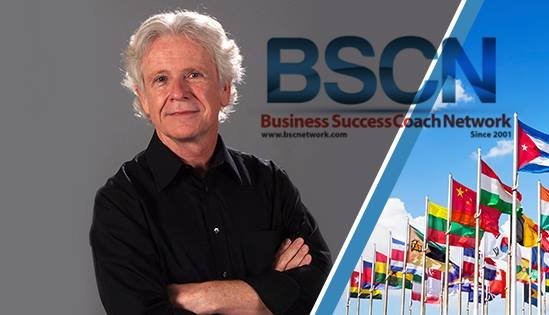
How to choose the right mentor
In demanding times, you need as much "backup" as you can get. One of the best, is a mentor.
"I think my mentor is one of the key reasons for my continued success, despite all the other things going on. And what she has shown me during our time together would have taken me years to figure out on my own."
That comment was the reply to a question I'd posed to an individual who's been very successful working in an organization known for being very difficult to move into from the outside.
I'm a big advocate of mentors. If more people took on this role, there may be less work for some coaches, but generally speaking I think the activities of each are different:
- Coaches are trained to help clients move forward successfully. Often, they'll provide a perspective that others internally simply cannot.
- Mentors are usually experts in the field or a particular organization. They know a lot about how to succeed in a given environment and "who's who".
Both individuals provide real benefit. They can help you get things done more quickly, often with less energy. And, in a difficult economic climate, they may be able to help you move forward when others are being moved out. If you don't have a mentor, consider getting one.
Here's how to go about getting the right mentor, and what to look for:
1. Look for a living Rosetta Stone - If you're new, or in a newly promoted role, a lot of what's said and done may not make a lot of sense. And while you're trying to determine what's important and what's just "noise", you aren't moving ahead. You want someone who knows how to translate what's going on and help you understand the next steps required.
2. Choose experience over nice - Your mentor should have a lot of experience within the organization, the company, the field, or the community. Your needs will vary but, like my client's mentor above, you really benefit if you choose someone who knows the history of things and what is "appropriate" for your actions and programs. Many newbies come in and start doing things that others have seen fail in the past. Learning on the job can take longer than is available.
3. Like any important relationship, you want commitment - When you have someone who's genuinely committed to being your mentor, they will give you time and want to see you succeed.
A solid mentor will praise you for good stuff. In many cases praise of any nature is doled out like Scrooge's Christmas Pudding so having a mentor reinforcing your successes is particularly replenishing. In the same vein a good mentor will tell you when you've screwed up.
We learn from our screw-ups but in many of today's passive/aggressive organizations, we never hear honest feedback about them and often repeat the problem as a result.
4. Male or female? Some people feel more comfortable with one gender or the other, but I haven't seen greater success if the parties are the same gender or the opposite one.
Most of my clients are women: I hear them say that some of the senior women in their organization exhibit an attitude kind of like, “Listen I busted by back to get here and nobody helped me; so it's up to you to make it on your own too." This counterproductive attitude is unfortunate; especially when women still fill less than 20% of top leadership roles in Fortune 500 companies.
Gender balance has been proven to improve the bottom line - it's great for societall issues. We need more women in the big roles. Period.
5. Recognize boundaries - In some relationships, especially in the case of formal mentoring programs sponsored by the employer company, there may be times when you cannot share information with the other person.
For example: promotions or terminations that could impact the "partner" in the relationship. But some things can't be shared without breaching confidences and it's important to know what's what.
Finally, it's important to note that even CEO's can use mentors - it's not for just those in the early stages of their careers.
Regardless of what level one is at, having a mentor can be one of the best ways to ensure you are on the right path and making the right choices. Go for it.
John
Funding Executive at Nationwide Business Funding & Real Estate Financing
9yWe Marines act as each other Mentors. We Network and find the help we need or give the Help we can to others.